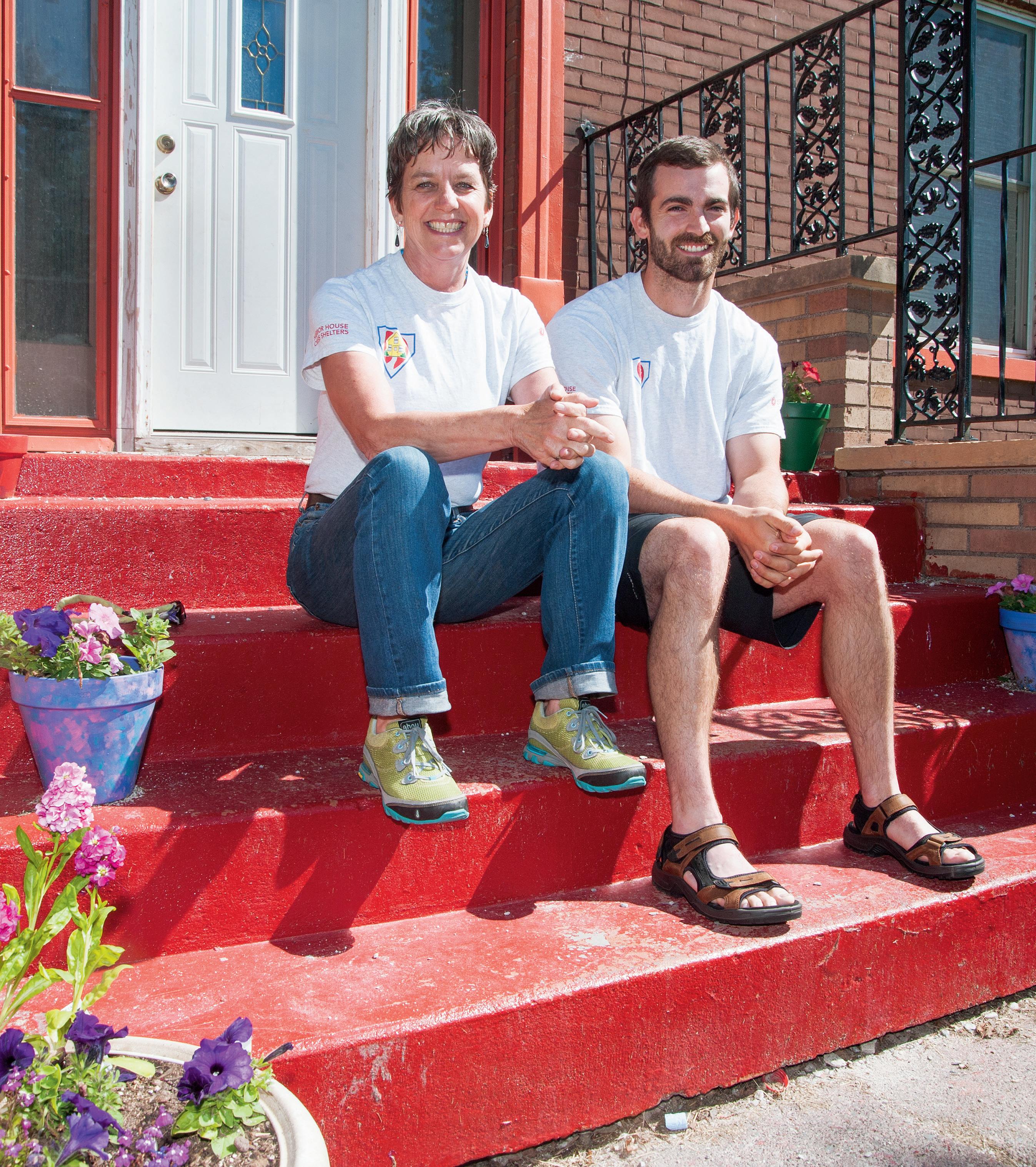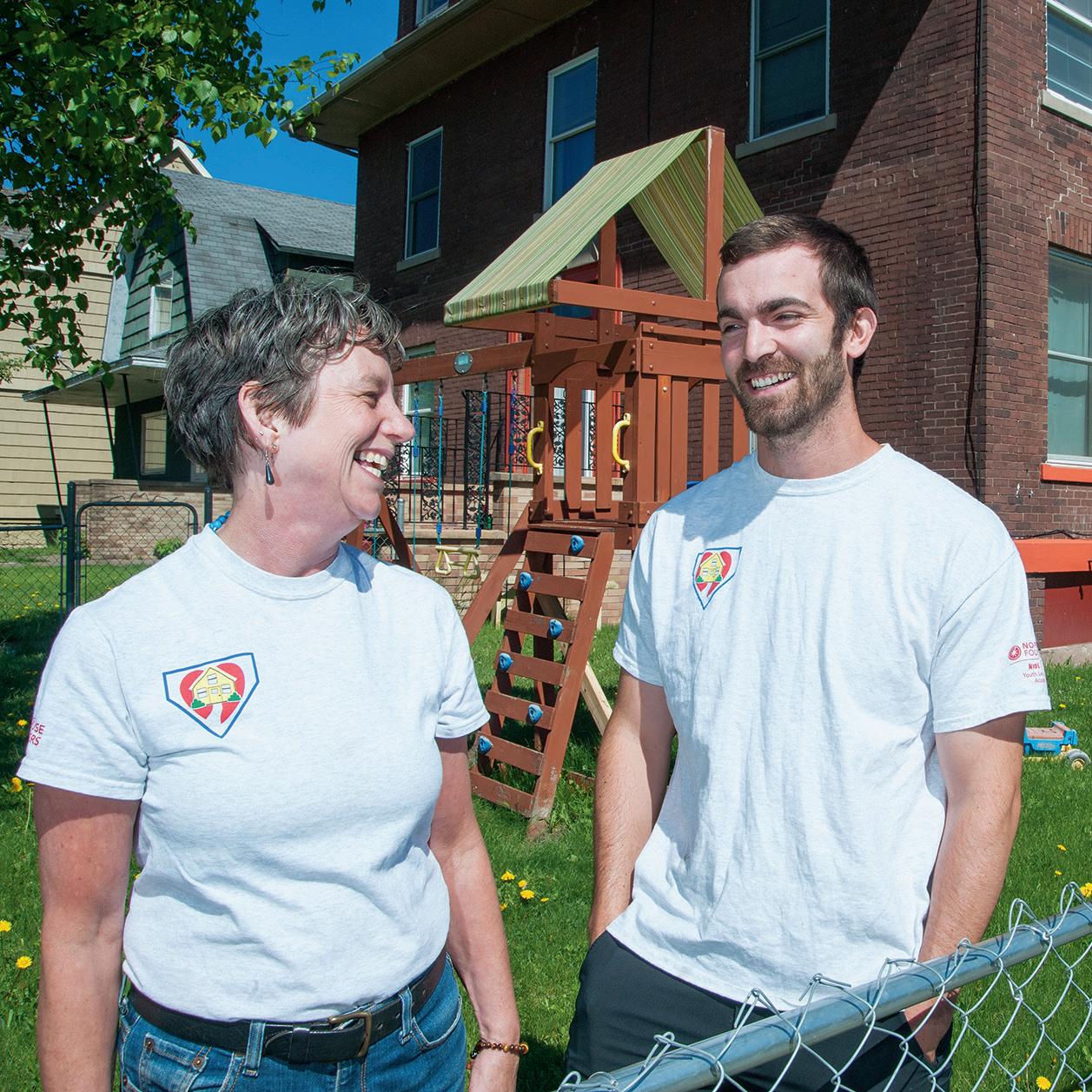
3 minute read
YOUTHS, MENTORS MAKING A DIFFERENCE
Kids Plus Youth Leadership Academy Helps Harbor House Crisis Center
BY TONY BENNETT
PHOTOS BY DAVID BALLARD PHOTOGRAPHY
Since the early 1990s, the Northland Foundation’s Kids Plus Program has been committed to the idea of improving the lives of young people across the region through a number of initiatives. Their Kids Plus Youth Leadership Academy, a program for ninth-graders that pairs them with adult mentors to plan and execute communityservice projects, is one that has already proven successful in its mission to educate youths about what it takes to make a difference.
Recently, the Kids Plus Youth Leadership Academy took on a service project centered around the Harbor House Crisis Center in which mentors and mentees aimed to make the Harbor House’s Emergency Shelter and their Transitional Living Center more welcoming through the installation of things like fire pits and patios, repairs to fencing, fresh coats of paint, and so on. It’s a direct way to show kids how a little hard work and smart planning can directly lead to impactful, demonstrable improvements in the lives of people who might be in need of just that.
Tracy Bennett is a mentor with the Kids Plus Youth Leadership Academy, and has been for the better part of a decade. The Superior resident is a court reporter who, at the time she got involved, was just looking for a way to be a positive force and lend a hand to others.
“I had always wanted to give back to my community,” Bennett said, “to try to be involved in as many ways as I could. A family member of mine saw the link where they were looking for mentors. I liked the program, because you just show up and guide the kids. It’s not like you have to come up with activities. I also liked that it takes kids from Superior and Duluth. Bridging the two communities interested me.”
Bennett said each Youth Leadership Academy service projects begins at the start of the school year. Students come together as a group to learn skills.
“It’s intriguing to me to see the difference from the beginning of the year,” she said. “They really change in a lot of ways between September and May.”
Bennett said she sees students finding opportunity through the program even though they might not have been involved in many school activities.
“They’re not, like, National Honor Society students, or the president of the class, or the captain of the football team,” Bennett said. “It’s not necessarily those kids. It’s just great, the variety of personalities that get into the program and the changes that they make throughout the year.”
Bennett said every group is different, but they’re united in a desire to help.
“They want to help people, or they want to help animals, or they want to make the community a greener place,” she said.
Bennett has been a mentor for projects that benefited Animal Allies, St. Ann’s, Hartley Nature Center, and more, including the recent one at Harbor House.

“I thought the transitional-housing one was really good,” Bennett said. “Most of the kids have a parent who drops them off, and they know where their next meal is. The people in the house that they worked on, it wasn’t necessarily like that (for them). It was good for them to see how good they have it, and how different it could be but for one event. This year was a good year, I thought. They did the shelter house and the transitional house.”
Luke Wohlwend is a mentor in the program, as well, but he has a unique perspective on it, as he is a former youth participant. He credits the program with helping him develop as a young man in myriad ways, and he said that it continues to enrich him as an adult.
“This is my sixth year as a mentor,” Wohlwend said. He has kept at it as an undergrad and during medical school. “When I was a kid, I wasn’t necessarily super confident. But they saw something in me I didn’t see in myself. They always pushed me and gave me opportunities and encouraged me.” Today, Wohlwend participates in the program from the other side of the fence. “As a mentor, I thought it would be empowering to continue to bring that forward with youth, today,” he said.
“These are skills that, as a ninth-grader, you don’t learn in school,” Wohlwend said of the program’s benefits. “They don’t teach you to contact organizations, to write a press release, to try and raise money. Those are life skills that should be taught, that this program does a great job showing you how to do.”
Tracy Bennett agreed. “They’re our future,” she said of the youths in the program. “Ninth-graders are going to eventually be the leaders of our country and our world, and I just think that guiding them to be part of the community, to interact with people from other communities not like themselves, is really important for future leaders.”










